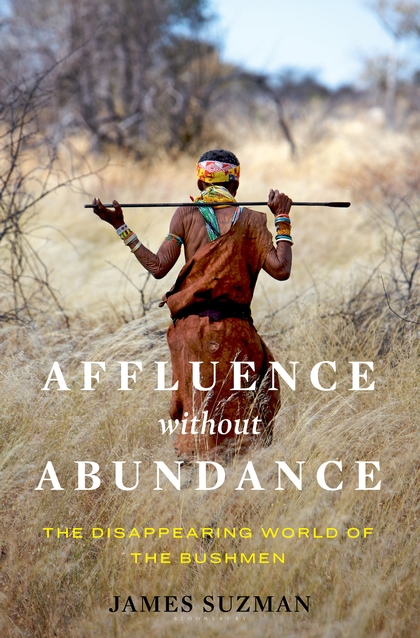What Do We Value?
 Sorry for not posting yesterday. I had a doctor’s appointment, then a friend stopped by and we got to talking, and then, after being inspired by an article in the New York Times, I started reading: Affluence Without Abundance: The Disappearing World of the Bushmen, by James Suzman. And then I couldn’t stop.
Sorry for not posting yesterday. I had a doctor’s appointment, then a friend stopped by and we got to talking, and then, after being inspired by an article in the New York Times, I started reading: Affluence Without Abundance: The Disappearing World of the Bushmen, by James Suzman. And then I couldn’t stop.
Here are some of the passages that grabbed my attention:
“Ju/’hoansi [bushmen] spend only 15 hours a week securing their nutritional requirements and only a further 15 to 20 hours per week on domestic activities that could be loosely described as ‘work.'”
“A good case can be made that hunters and gatherers work less than we do and that, rather than a continuous travail, the food quest is intermittent, leisure abundant, and there is a greater amount of sleep in the daytime per capita per year than in other conditions of society.”
“What was special about the Bushman data was that it showed that they coped easily with relative scarcity and that they had mastered the art of not obsessing about whether the grass was greener on the other side, which–given that they lived in one of the world’s oldest deserts–almost certainly was the case.”
“[The perspective of the Ju/’hoansi as a result of their introduction to modern society] brings the difference between foraging and production cultures–like our own–into vivid if sometimes uncomfortable relief. It reveals how our sense of time shapes and is shaped by our economic thinking; why, despite our obsession with celebrity and leadership, we take such pleasure in seeing the successful stumble and why we object so viscerally to inequality when we feel ourselves to be the victims of it.
“It also invites us to query how, why, and to what we ascribe value; how we understand affluence, satisfaction, and success; and how we define development, growth and progress. Perhaps most importantly it reveals how much of our contemporary economic and culture behavior–including the conviction that work gives structure and meaning to our lives, defines who we are, and ultimately empowers us to master our own destinies–is a legacy from our transformation from hunting and gathering to farming.”
